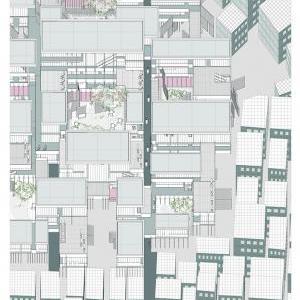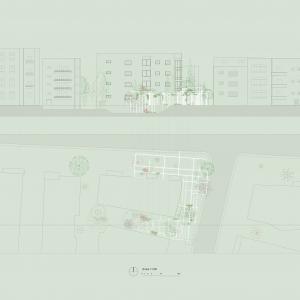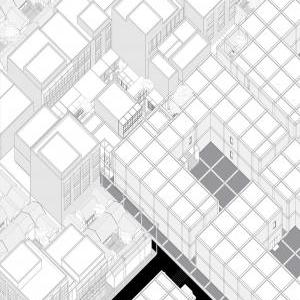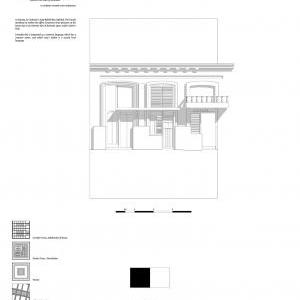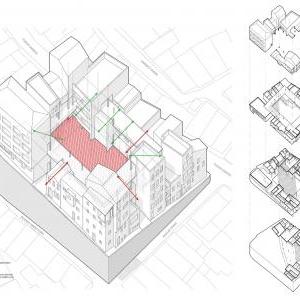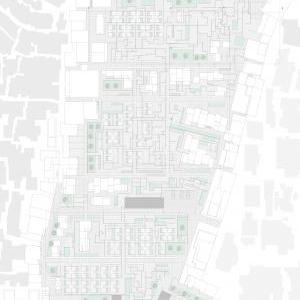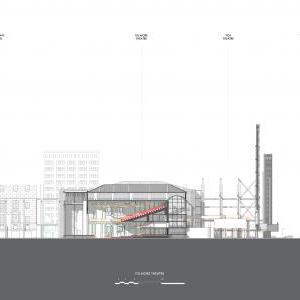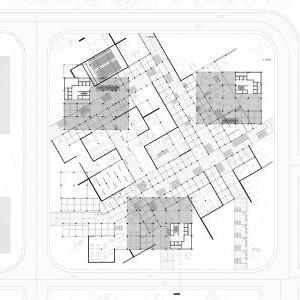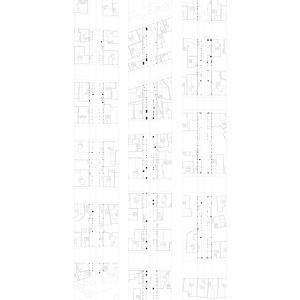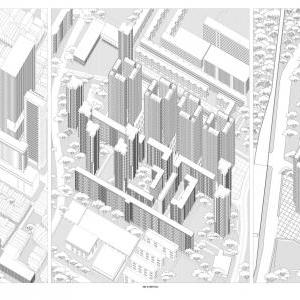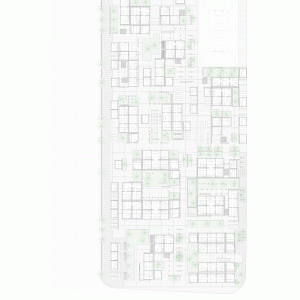
Dip 8
Common Forms of the City
DIP-08‘Any literary succession is first of all a struggle, a destruction of old values and a reconstruction of old elements.’ • Yury Tynyanov
This year Diploma 8 embarked on an exploration of architectural form. Taking our cue from early to mid-twentieth-century literary movements, we approached an interrogation of reading and writing as an active process of architectural speculation. Like the Russian formalists attempting to roughen textual surfaces, our agenda utilised devices that stripped away the familiarity of the built environment. Students developed critical readings of their chosen site and context, uncovering latent architectural sediments otherwise obscured by layers of cultural, social and economic history.
In the same way that the formalist preoccupation with ‘literariness’ was used as a means to argue for a disciplinary autonomy through a deconstruction of language, we used analogous devices for making distinctions between architecture and building. However, rather than distinguishing elements of architecture by ascribing functional roles, students were asked to identify and argue for dominant forms that rendered cities legible. By scrutinising the perpetual emergence and evanescence of forms that give scale, tactility and meter to a city, students were then able to exploit their findings, challenging architecture through its formal bases.
The year has yielded a range of architectural proposals that exist in presentia as much as in potentia, taking what is common in architecture and attempting to make it difficult. Instead of challenging our understanding of architectural form through mere additive processes, the agenda put forward an approach that placed emphasis on providing oppositions within extant structures of the environment and its histories. It is with such an agenda that the unit seeks to evolve earlier literary influences, enabling a conversation of language to still find relevance in a discussion of architectural form today.
Unit Staff
Eugene Han
Visiting Jurors
Andy Bow, Barbara-Ann Campbell-Lange, Javier Castañón, Maria Fedorchenko, Francesca Hughes, Sam Jacoby, Marina Lathouri, Thomas Weaver, Andrew Yau, Liam Young.
